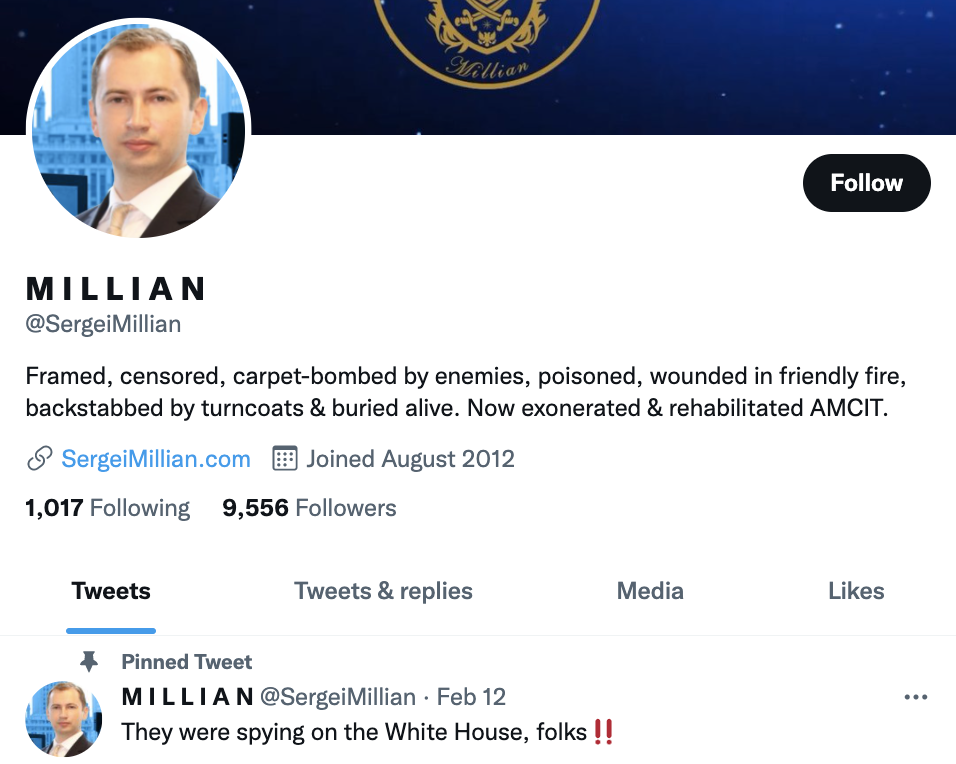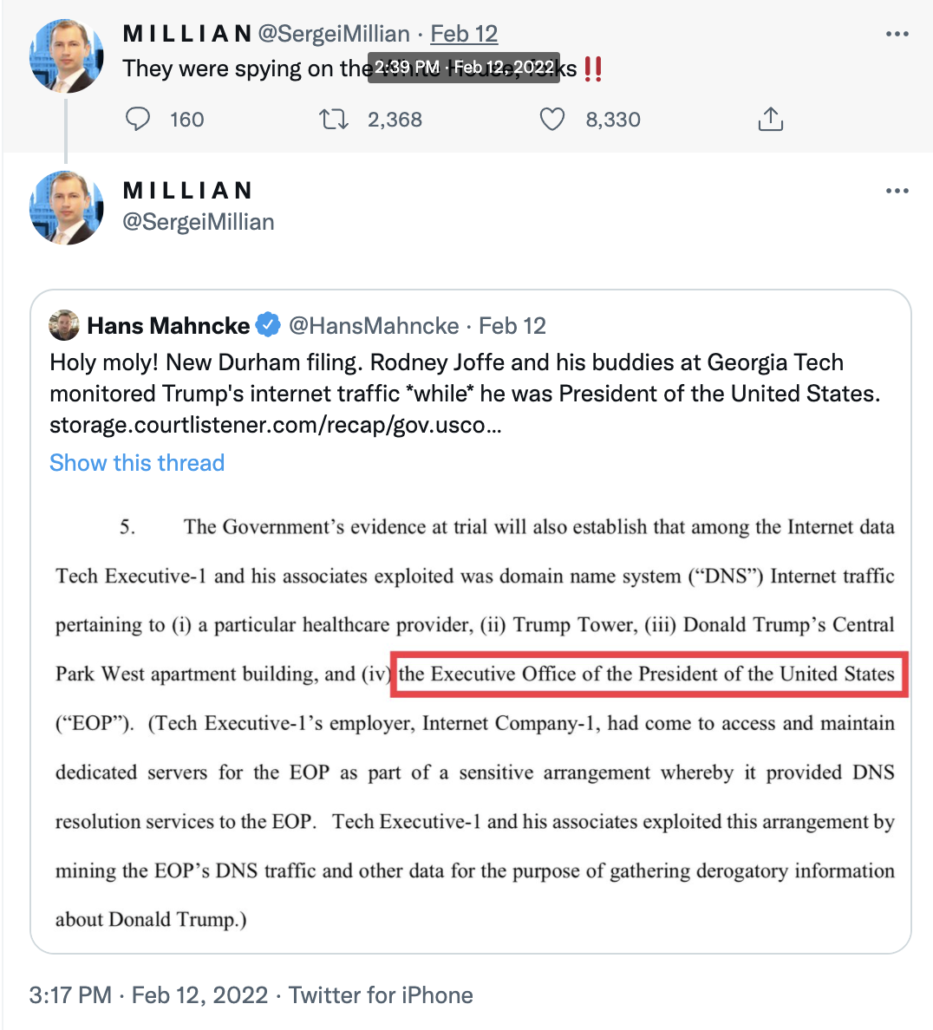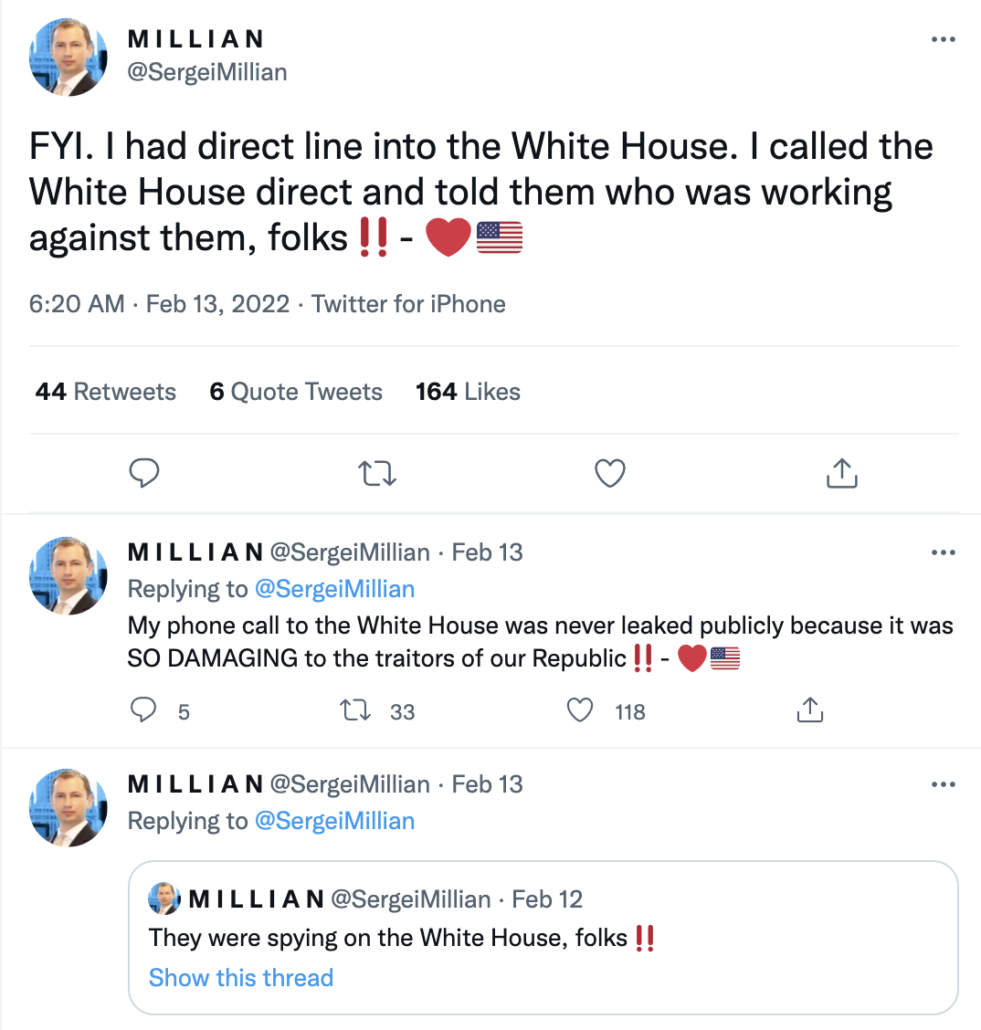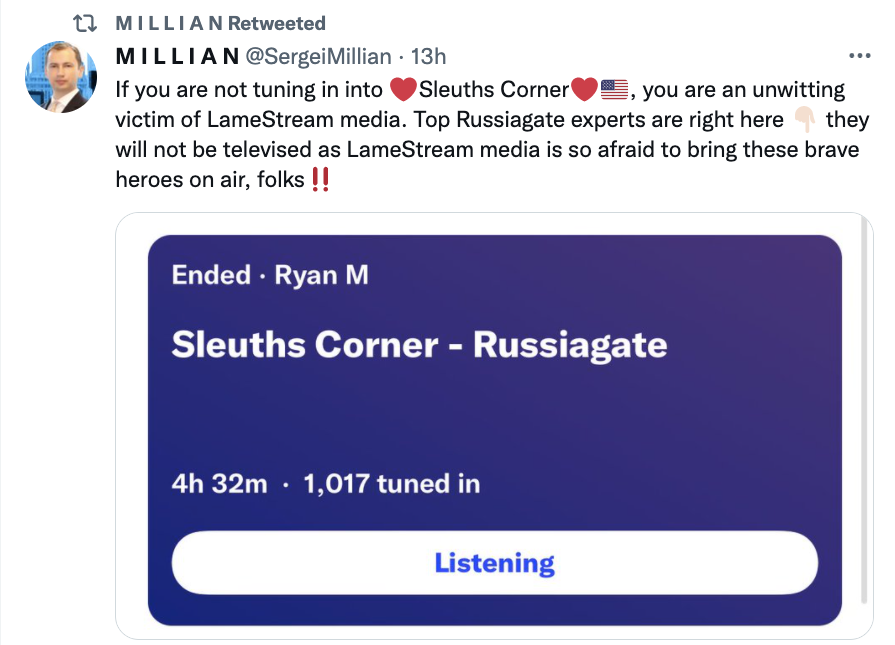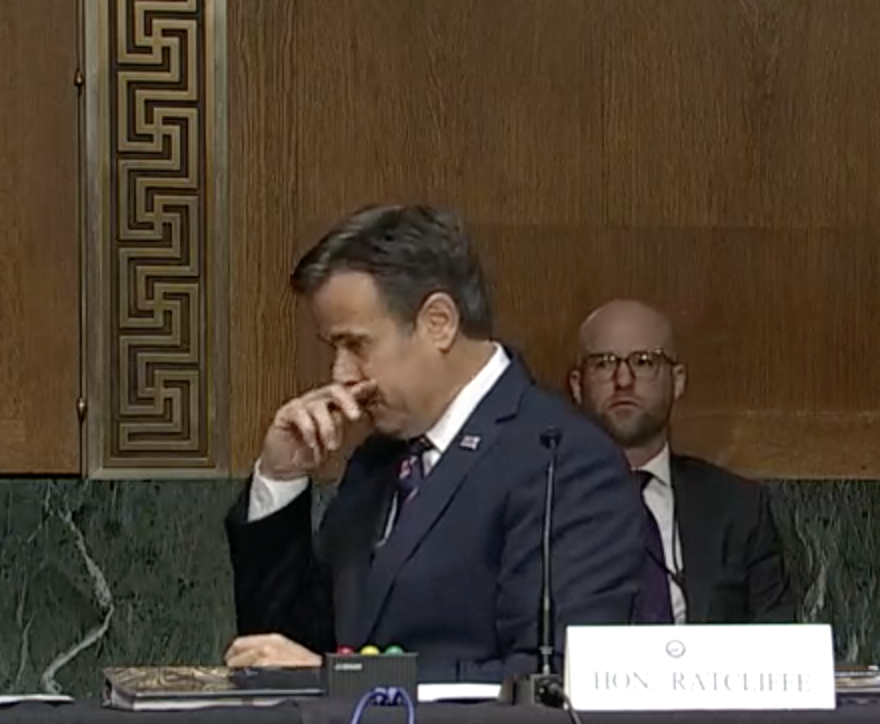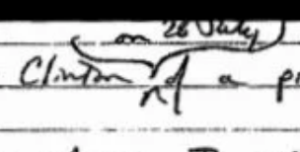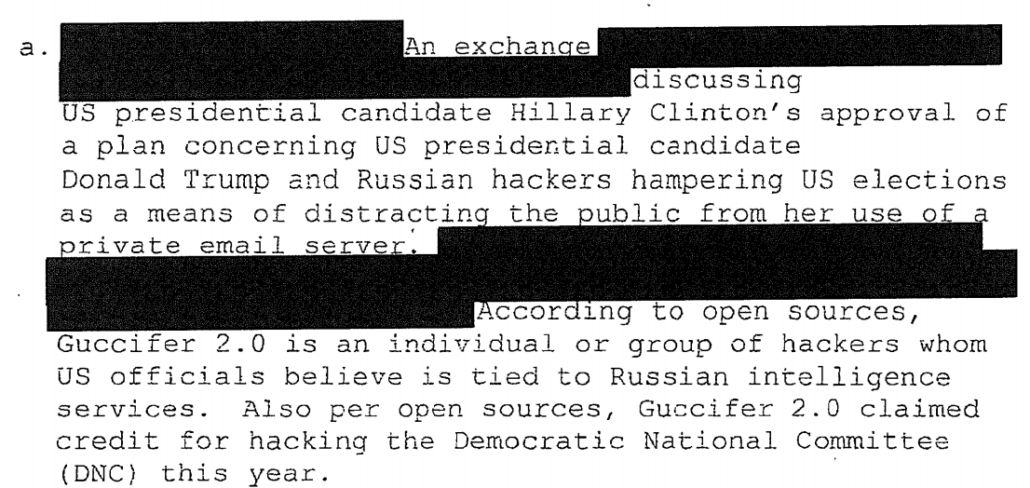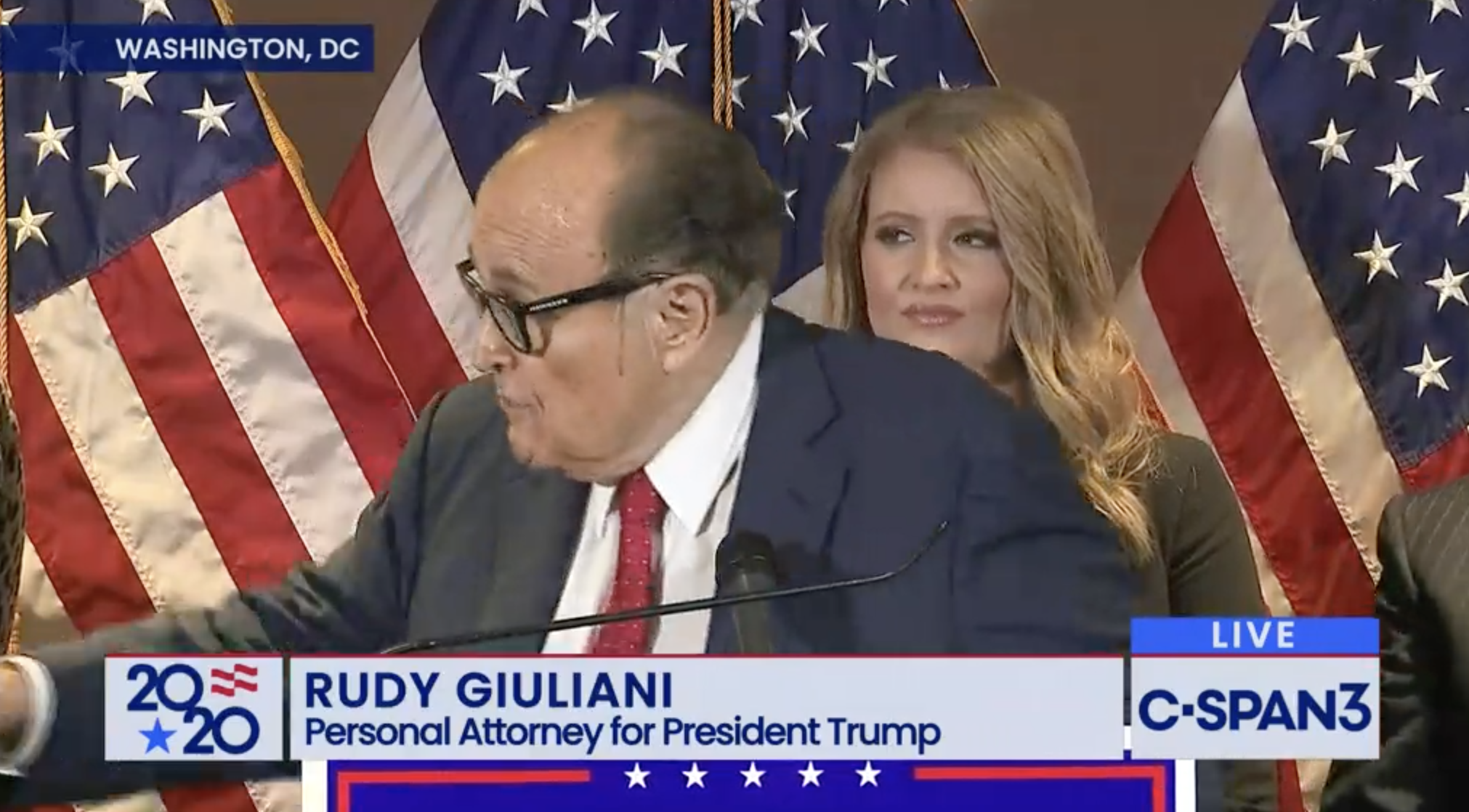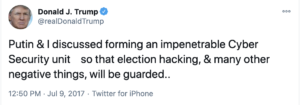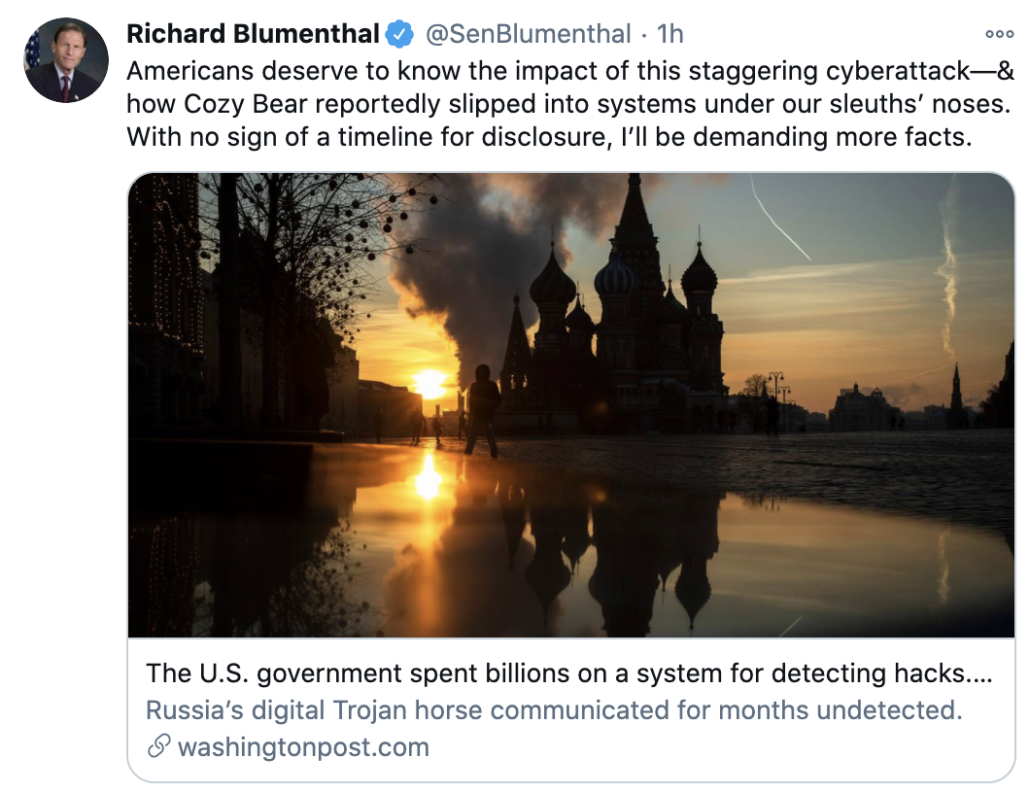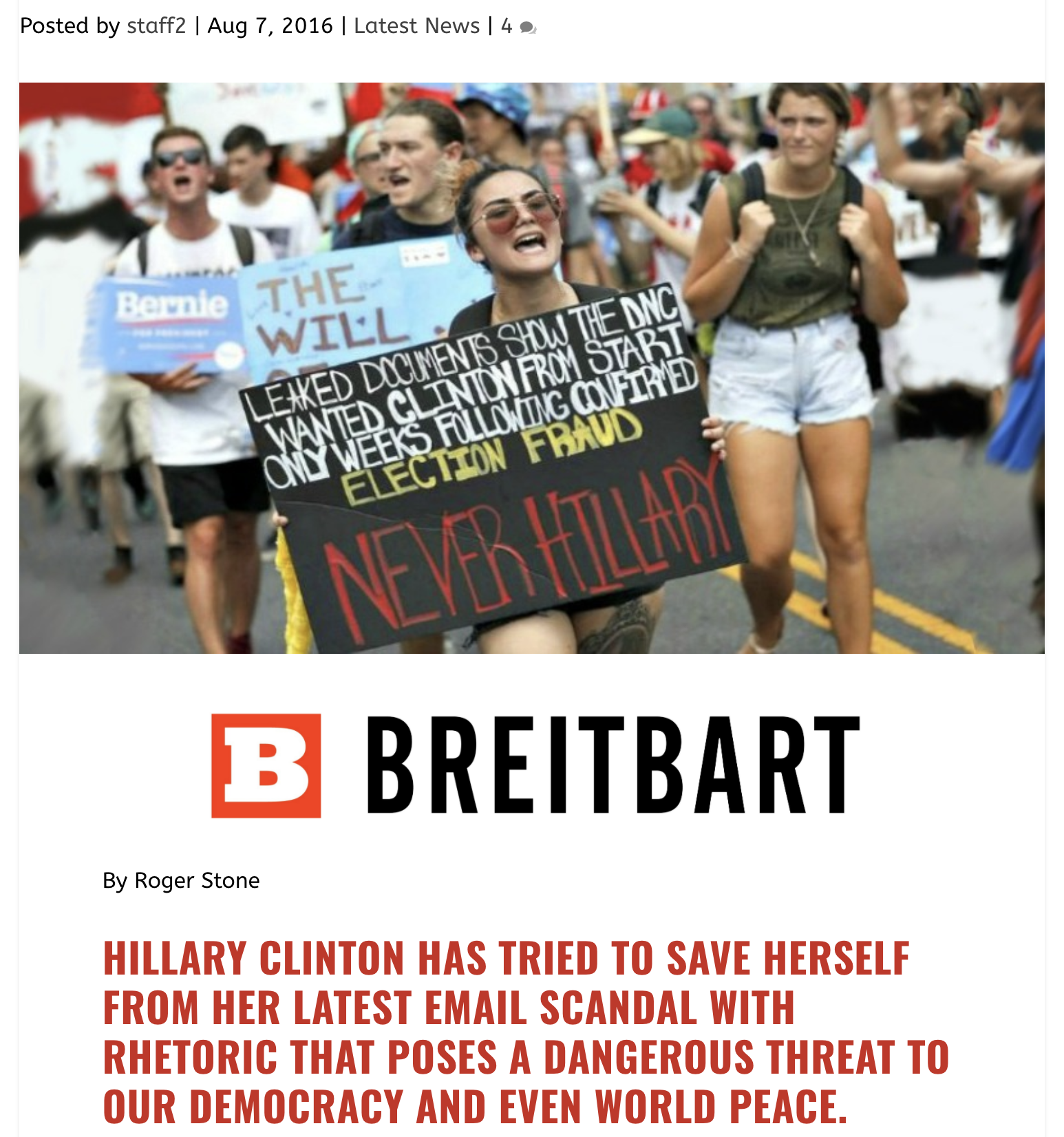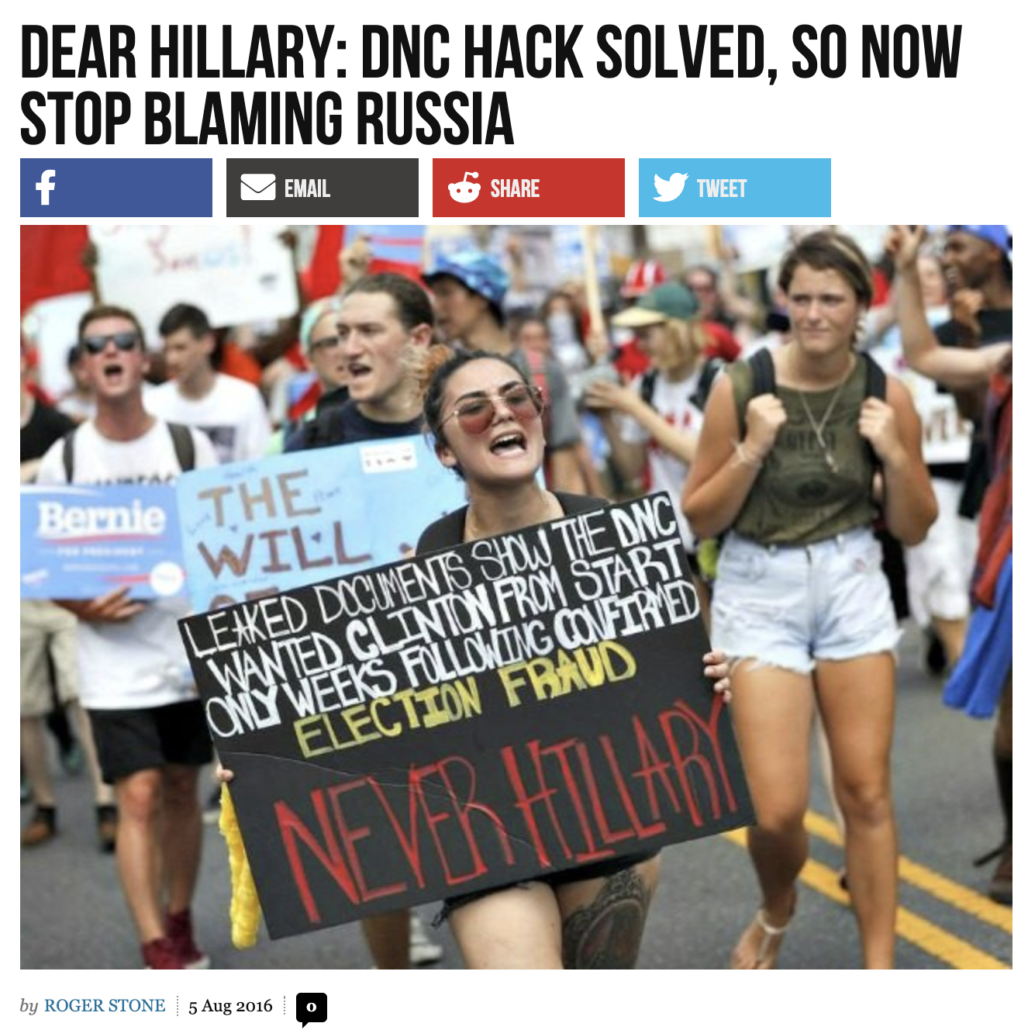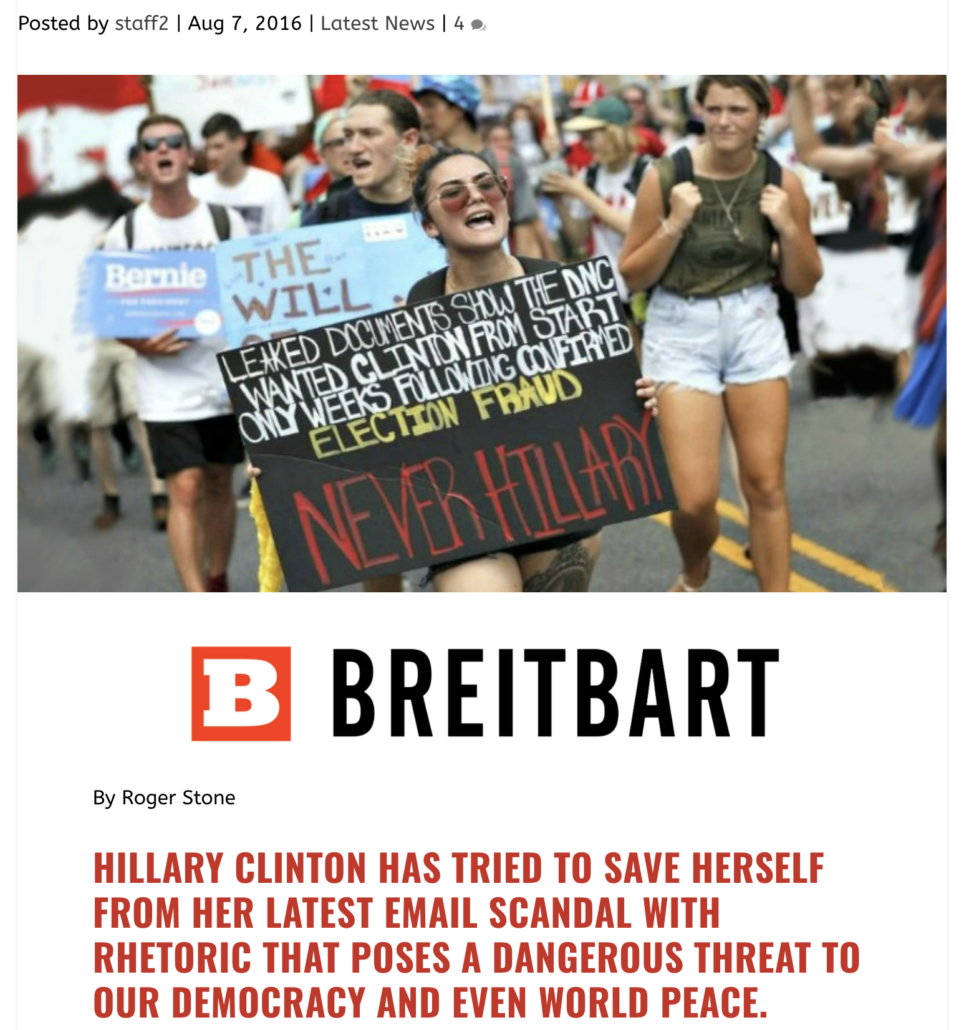The government just released reprocessed versions of the Sam Patten 302s that it released in January 2020 as part of BuzzFeed’s FOIA for the Mueller interviews, with just one new disclosure (evidence that Steve Bannon knew of the DNC email release in advance). As a reminder, Sam Patten was the business partner of Konstantin Kilimnik who pled guilty in 2018 for FARA violations.
That DOJ released 40 pages in almost exactly the same form as it previously released them is not unique to Patten. DOJ likewise released George Papadopoulos, KT McFarland, and Erik Prince’s 302s with almost no new disclosures. Effectively, DOJ used its monthly release to BuzzFeed as an obnoxious way of conveying that, except for details showing that even Jerome Corsi was a cover story for Stone’s activities in 2016, DOJ isn’t going to release any more details about the Mueller investigation.
But the heavily redacted 302s are actually of significant interest. That’s because between the time these 302s were first released in January 2020 and now, the Senate Intelligence Committee released its own Russian investigation report, in August 2020. That report relied heavily on the 302s that remain so heavily redacted.
In fact, the declassification of the SSCI Report conducted by ODNI under John Ratcliffe at a time he was declassifying a slew of other documents to help Trump disclosed a great deal of material that, given the recent DOJ release, DOJ claims remain sensitive. The great majority of these passages — and indeed the majority of what remains redacted — were redacted in part using a b7A redaction, indicating an ongoing investigation. I’ve put in the materials that appear in the SSCI Report that remain redacted in this week’s release below, marking with italics what DOJ has released in the 302s.
Effectively, then, this structures the information already released by SSCI in such a way to show how the investigation of Patten — and through him, Manafort and Kilimnik progressed. It also shows what DOJ claims remains sensitive.
Patten interviewed in January 2018 with SSCI and lied to hide that he had used a straw donor to buy Inauguration tickets for Kilimnik and one of the Ukrainian oligarchs who was paying Manafort. Patten seems to have admitted his error as soon as Mueller got involved, because his first Mueller interview, on May 22, 2018, effectively truthfully admits to the crime he would eventually plead guilty to. But that 302 also describes what he learned of Kilimnik’s two trips to the US during the campaign (most of the details about the first one remain redacted). It describes how Patten let himself discount warnings that Kilimnik was a Russian spook, and also reveals how he continued to keep Kilimnik in the loop about the FBI investigation of him.
Heavily redacted passages seem to describe the relationship between Oleg Deripaska and Kilimnik, as well as Deripaska’s business in other countries.
A description of what bloggers and journalists Patten paid remains heavily redacted; the implication is that these are overseas, but given the career track of certain American journalists, the notion that Kilimnik or his bosses would buy off the press remain of interest. Discussions of Patten’s communications — many of which are surely included in unredacted form in the SSCI Report — remains entirely redacted.
Patten’s second interview, on May 30, 2018, provides a lot more details that would be pertinent to Manafort. Of particular interest, Kilimnik made a real effort to get Patten a job in the Trump Administration, an offer that Patten declined (he has publicly said he voted for Hillary in 2016). And Kilimnik pressed similar Ukrainian policies with Patten as he did with Manafort. His efforts to cultivate the two of them, it seems clear, was significantly an effort to carve up Ukraine for Russia.
A September meeting would have been prep for the Manafort trial that was due to start the next week.
And then after Mueller declared that Manafort had lied while he pretended to cooperate, Mueller brought Patten back — with a non-Mueller AUSA — for a substantive interview, much of which remains redacted. It’s clear that even then, Mueller was still trying to figure all that Kilimnik had done during his May 2016 trip to the US.
On the day Patten first appeared before the grand jury, Kilimnik texted him to try to get him to lie about the Inauguration tickets. And after Patten’s guilty plea was made public, Kilimnik offered to get one of the oligarchs to pay his bills. Parts of these documents that remain redacted show how Kilimnik was attempting to undermine the Russian investigation in other ways.
Among the things the 302s show is how Kilimnik was handling Patten — and presumably was also handling Manafort. For example, Patten used some of the same operational security that Manafort did with Kilimnik. Of particular interest, through at least the Inauguration, Kilimnik was lying to Patten about remaining in touch with Manafort. He was keeping his efforts with these two men compartmented.
The government’s sentencing memo in this case describes that, in addition to Manafort, Patten cooperated in “a number of other criminal investigations.”
Specifically, Patten was a potential witness in the case of United States v. Manafort, No. 17-cr-201 (ABJ), and he was willing and able to testify about Paul Manafort’s work in Ukraine for the Opposition Bloc and related matters. To prepare for his anticipated testimony, Patten met with prosecutors before trial and he provided documentary evidence supporting his expected testimony. Ultimately, because Manafort pled guilty in that case, Patten’s testimony was not needed. In addition, due to his prior work and experience as a political consultant overseas, Patten has served as a valuable resource for the government in a number of other criminal investigations, providing helpful information about additional individuals and entities
Between the sentencing memo and a May 2020 memo in support for early termination of his probation, the government referred to at least two meetings are not included in these 302s, with one taking place on April 17, 2020, not long before the FBI offered a $250,000 reward for Kilimnik in June 2020 and just a few months before Amy Berman Jackson first moved towards unsealing the Manafort breach documents in July 2020.
So one of those other investigations was likely into Kilimnik, suggesting the government conducted not just a counterintelligence investigation into him, but a criminal investigation into his role in 2016. But there’s virtually no chance that Kilimnik will ever wander into a country where the US can extradite him. Which will make for an interesting explanation when BuzzFeed asks why its reprocessed 302s continue to redact information that was declassified last year.
January 5, 2018: Patten SSCI interview
March 20, 2018: Attempted FBI interview
[release]
May 22, 2018 Mueller interview
Weissmann present
[first release]
[second release]
Presidential Inaugural Committee
In early January 2017, Kilimnik asked Patten to obtain tickets to the inauguration through the Presidential Inaugural Committee (PIC). According to Patten, Kilimnik made this request on behalf of Lyovochkin.623 Patten eventually obtained tickets through a straw purchaser, intended for Kilimnik, Lyovochkin, and Vadim Novinsky, a Ukrainian businessman and politician affiliated with the OB.
[snip]
Patten eventually obtained tickets through a straw · purchaser, intended for Kilimnik, Lyovochkin, and Vadim Novinsky, a Ukrainian business man and politician affiliated with the OB.6
[snip]
That evening [January 19], Patten, Kilimnik, Lyovochkin, and a pollster who had worked with Kilimnik and Patten in Ukraine had dinner together
On January 19, Patten, Kilimnik, Lyovochkin, and a pollster had dinner together.
That evening, Patten, Kilimnik, Lyovochkin, and a pollster who had worked with Kilimnik and Patten in Ukraine had dinner together.6
FARA
Some discussion of work in Ukraine. Heavily redacted, including b7A.
Konstantin Kilimnik
Background on ties at IRI.
Patten told the SCO that after he had left IRI, an IRI employee who worked at IRI’s Belarus desk, Trig Olson, made a claim that Kilimnik leaked information to Russian intelligence.1061 Olson based his assessment on a situation where information provided in a meeting that Kilimnik had attended was leaked to Russian intelligence.1062 Patten ultimately confronted Kilimnik about Olson’s allegation, and Kilimnik denied he was the source of the leak.1063
Patten said he was skeptical of Olson’s allegations about Kilimnik’s ties.to Russian intelligence in part because he believed Olson had a score to settle with Manafort because Olson had been fired from the McCain Campaign by Rick Davis, Manafort’s former business partner.
Kilimnik’s two trips to the US during the campaign
Patten wrongly believed that Kilimnik had flown to NY to meet with Manafort.
Patten was under the impression that Kilimnik may have traveled using private air travel arranged by Manafort, potentially on the Trump-owned plane.
Kilimnik told Patten that John Kerry’s Chief of Staff, Jonathan Finer, was “in space” at a meeting on May 6, 2016
Kilimnik was frustrated by this meeting, stating that he met “Finer or whatever the fuck is his. name. In total space.”
Patten said he understood “[i]n total space” to mean “in outer space” and.therefore not well informed on issues involving Ukraine.
August 2
At the meeting, Manafort walked Kilimnik through the state of the Trump Campaign, including its internal polling data, and Manafort’s plan to win
[snip]
This polling data included internal Trump Campaign polling data from Trump Campaign pollster and longtime Manafort associate Anthony Fabrizio.
[snip]
Kilimnik told Patten that at the New York cigar bar meeting, Manafort stated that they have a plan to beat Hillary Clinton which included Manafort bringing discipline and an organized strategy to the campaign. Moreover, because Clinton’s negatives were so low [sic]-if they could focus on her negatives they could win the election. Manafort discussed the Fabrizio internal Trump polling data with Kilimnik, and explained that Fabrizio ‘s polling numbers showed that the Clinton negatives, referred to as a ‘therm poll, ‘ were high. Thus, bas~d on this polling there was a chance Trump could win..
SSCI interview
Unredacted includes lies about FARA and PIC.
Additionally, Sam Patten, another key witness in the investigation due to his close relationship with Kilimnik, similarly engaged in conduct designed to obfuscate his relationship with Kilimnik. Patten withheld and deleted documents related to Kilimnik that were relevant to the Committee’s investigation.
Oleg Deripaska
Boyarkin
According to Patten, Kilimnik has met with Deripaska and Deripaska associates, including Boyarkin. Patten understood that Kilimnik was in continuous contact with Deripaska and his inner circle. FBI, FD-302, Patten 5/22/2018.
[snip]
Patten told the FBI that he recalled having a Skype call with Boyarkin and Kilimnik on May 24, 2015, about the Guinea project.1004 Patten told the Committee during his interview that he did not know a “Viktor Boyarkin.”1005 Patten later told the SCO that he did not lie to the Committee because at the time he only knew Boyarkin as “Viktor,” a Russian associate of Kilimnik’s who worked for Deripaska.1006
FBI, FD-302, Patten 5/22/2018. As noted above, Patten told the SCO that the proposals he worked on with Kilimnik related to Guinea, Kazakhstan, and others were for Deripaska. FBI, FD-302, Patten 5/22/2018
Viktor Yanukovych
Payments to Journalists/Bloggers
Largely b7A
Specific communications
Largely b7A
Steve Bannon (including advance knowledge of DNC release)
Largely unredacted
FBI visits
Some unredacted, including Patten telling others of FBI
During the execution of a search warrant on Patten’s home, Patten used his wife’s phone to send a text message to Kilimnik and then deleted the message:
[snip]
Patten told the FBI that after an initial visit to his home by what Patten believed to be FBI agents, he deleted emails, some of which pertained to work he had performed for Cambridge Analytica in Mexico because he had been told that his work there was “off the books.” FBI, FD-302, Patten 5/22/2018.
[Redacted (Kilimnik undermining RU investigation)]
One long B7A paragraph
Patten used foldering with Kilimnik.
Patten also engaged in foldering with Kilimnik.
May 30, 2018 Mueller interview
[first release]
[second release]
Andrew Weissmann present
2007
Half unredacted, discussion of rumors that Akhmetov was providing funding to Yushenko
Patten’s first engagement in Ukraine
Partially redacted, discussion of what Manafort was doing at same time
Patten wasn’t sure how all the bills got paid.
Patten, whom Kilimnik recruited to come to Ukraine in 2014 to assist the OB and who reported to Kilimnik, recalled that although Kilimnik worked from an office in Manafort’s firm in Kyiv, it was unclear to Patten whether Lyovochkin or Manafort was paying Kilimnik.213
213 Patten stated that he was hired by, paid by, and reported to Lyovochkin through Kilimnik for his 2014 work in Ukraine.
[snip]
Patten recalled one occasion during his first meeting with Manafort in Kyiv where Manafort had spoken highly of Kilimnik and called Kilimnik a “powerful little dude.”
2015
Patten described some contention over whether he worked for Lyovochkin or for Vitali Klitschko.
Patten’s Ukraine work with Kilimnik in support of Lyovochkin is consistent with Gates’s characterization. In early 2015, Vitali Klitschko, a former opposition leader during the Maydan protests, hired Patten to assist in his Kyiv mayoral campaign. Kilimnik arranged the meeting where Klitschko hired Patten. Lyovochkin, who was ostensibly not a part of Klitschko’s campaign or political party, paid Patten from an offshore account Lyovochkin controlled. Patten recalled one 2015 meeting with Klitschko and Kilimnik in which Klitschko kicked Kilimnik out of the meeting and told Patten that Patten worked for him (Klitschko) and not Lyovochkin. Klitschko told Patten that he kicked Kilimnik out because Kilimnik was too close to Lyovochkin. Patten, who worked in support of Klitschko for approximately a year, was paid $800,000—solely by Lyovochkin.
[redacted information about scope of work, including Guinea]
Redacted
Redacted
Redacted
2016 Current US policy to the Ukraine and Russia
Unredacted discussion of recent work
Manafort remained in the background of the campaign after being fired.
Kilimnik told Patten that Manafort stayed in the background, but still maintained contact and stayed close to Trump.
Kilimnik tried to convince Patten to get Manafort to get him an Admin job
Patten said he declined Kilimnik’s offer
[snip]
Kilimnik specifically sought to leverage Manafort’s contacts with the incoming Trump administration to advance Kilimnik’s agenda, particularly with regard to the Ukraine plan. Kilimnik thought that Trump could solve Ukraine’s problems because of Manafort’ s connection to Trump.
[snip]
After the U.S. presidential election, Kilimnik and Patten began developing ideas for peaceful settlement to the conflict in eastern Ukraine. Kilimnik and Patten drafted a paper outlining the plan, which was to decentralize power, limit Kyiv’s role in running the country, engage in direct bilateral talks between Poroshenko and Putin, and focus on local elections.763 The plan included having the United States serve as an honest broker and work directly with Russia at the highest levels to resolve the conflict.764
[snip]
Kilimnik used his work with Patten to test the viability of a Yanukovych return. Patten recalled conducting at least one poll with Kilimnik in 2017 as part of their ongoing work for the OB.767 In mid-2017, Kilimnik and Patten organized a survey at Kilimnik’s urging to, in part, discreetly measure voters’ openness to Yanukovych’s return768 According to Patten, Kilimnik thought that if Yanukovych returned to politics in eastern Ukraine, it would help the OB because Yanukovych would bring strong leadership back to the OB.769
Patten recalled that the poll tested a wide variety of issues, but included questions designed to test voters’ sentiment ofYanukovych. FBI, FD-302, Patten 5/30/2018. See also Email; Kilimnik to Patten and Garrett, July 11, 2017 (SSC! 2017-4885-3-000054) (responding to focus group testing, Kilimnik asked if respondents were “open to Yanuk return” which he believed was an “important question.”).
2017
Privacy-related redactions on recent work
Presidential Inaugural Committee
About half redacted
This section includes reference to “VY” having a Brussels office, which a later question makes clear he didn’t know was the Hapsburg Group
Hapsburg Group
Patten unfamiliar
Alex Van Der Zwaan
redacted
May 31, 2018 Grand Jury appearance
Kilimnik texts Patten about his grand jury testimony
[first release]
[second release]
FBI Agent takes pictures of something on Patten’s phone, almost certainly texts from Kilimnik about the grand jury testimony.
Texts from Kilimnik
On May 31, 2018, the day Patten was scheduled to testify before a grand jury, Kilimnik asked Patten if there was “anything I can help you with on the GJ [grand jury].”1095 Patten expressed concern to Kilimnik about his testimony related to purchasing inauguration tickets for Lyovochkin and money from Lyovochkin transferred to Patten for that purpose. 1096 Kilimnik offered Patten an “explanation,” suggesting to Patten a fabrication he could offer to the grand jury:
How about they sent it to us for a poll they wanted to do, and because they (as they typically do) canceled the poll you decided to use it for inauguration tickets. Do your client a favor. One failed to come, no one actually attended other than you and SL. Business development for us. 1097
June 6, 2018 Mueller interview
[first release]
[second release]
Weissmann present
[Redacted (consulting and FARA)]
Largely b7A
Department of State
Short section, b7A
June 12, 2018 Mueller interview
[first release]
[second release]
Weissmann present
Short FBI phone interview, redacted topic.
Patten and Kilimnik exchanged a December email after the one Kilimnik sent to Manafort
Patten may have written a one page Iraq solution proposal and provided it to Kilimnik, which Patten assumed would be provided to Manafort. At the time of the December email, Patten knew that Kilimnik was in Moscow and it was possible that Kilimnik shared this email with someone in Russia, but Patten did not know if Kilimnik did share it
August 31, 2018 Guilty plea
Guilty plea
September 6, 2018 Mueller interview
[first release]
[second release]
Weissman and Rhee present
Public update on restricted Facebook page
Review of
- A document on travel information; Patten describes that someone called and informed him all his work had been for Opposition Block
- A document about a parallel campaign to one Manafort and Gates had been running in Ukraine
- A document pertaining to Petro Poroshenko
- A document showing someone editing a document Patten had written
- Possibly another document
- A document about the political persecution of the Party of Regions members for advice on media campaign
- Another document on work that was not reported under FARA
- A response to a news article Patten sent
- A 2017 BGR email on which he had put a FARA notice
Somewhere Lyovochkin get mentioned:
Patten further noted that Lyovochkin had previously managed Manafort’s account for Yanukovych.
September 19, 2018
[first release]
[second release]
Attorney proffer of screenshots of a PDF, almost certainly of Kilimnik’s offer to pay Patten’s legal fees.
In September 2018, Kilimnik offered to arrange for Patten to receive money from Lyovochkin even after Patten’s work for Lyovochkin had ceased and Patten’s cooperation with the Government was public. Kilimnik asked Patten about the possibility of”sending a post-factum invoice for lobbying to SL.” Kilimnik further stated that SL is “ready to do it” as compensation for Patten’s legal costs. Text Message, Klimnik to Patten, September 16,201
November 27, 2018 Mueller interview
[first release]
[second release]
Weissmann and anon AUSA present
Redacted
Redacted
Outreach to Mike Flynn
Patten’s latest contact with redacted
Ukraine
Miscellaneous
7 redacted questions (possibly whether he knew someone or specific documents), all but one b7A
Patten explained that he was unaware of any wedding, which is what Kilimnik said he was doing on his trip to the US in May 2016.
Patten, who was in contact with Kilimnik during his trip and met with him while he was in the United States, was unaware of any wedding.
[snip]
Patten understood that the main purpose of Kilimnik’s trip was to meet with Manafort.
[snip]
Patten recalled that Kilimnik stayed with him for one night during one of his trips to the United States, and later believed it might have been this trip.
More details around the inauguration.
The day of the inauguration, Patten, Lyovochkin, and Kilimnik had lunch in Alexandria, Virginia.627 Kilimnik told Patten that he was nervous that he would see Manafort because Kilimnik knew that Manafort resided in Alexandria.628 Patten believed Kilimnik was trying to distance himself from Manafort in furtherance of his work in Ukraine.629 Unbeknownst to Patten, Kilimnik and Lyovochkin met with Manafort at the Westin in Alexandria during this trip.630
[snip]
According to Patten, he and Kilimnik watched the inauguration in the lobby of the Mandarin Oriental hotel in Washington; D.C., where Patten understood Kilimnik was staying.632 That evening, Patten and Lyovochkin briefly attended an inaugural ball .. Kilimnik told Patten that he was staying in his hotel room.633
Ukrainian peace plan
Patten recalled Kilimnik discussing exiled former PoR members living in Moscow-including Yanukovych-whom Kilimnik collectively called “the refugees.”765 Kilimnik was interested in these refugees and their possible return to politics in Ukraine.766
[snip]
The poll revealed that Yanukovych was not viable at that time.770 While Patten was.aware thatKilimnik would periodically mention Y anukovych, Patten claimed he never got the sense that Kilimnik was trying to push Yanukovych’s retum.771 Patten also believed that Kilimnik was attempting to distance himself from Manafort in furtherance ofKilimnik’s own ongoing work in Ukraine.772
April 17, 2020 post-Mueller DOJ interview
Later meeting with DOJ.

